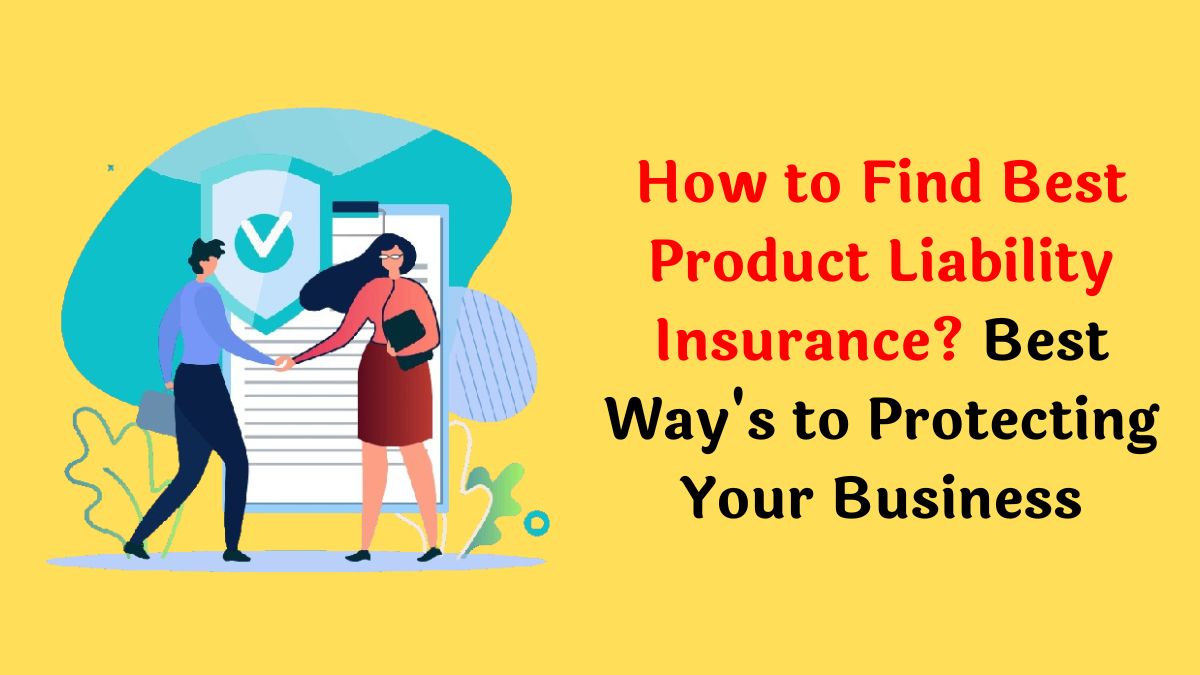Product liability insurance is a critical component of risk management for businesses engaged in manufacturing, distributing, or selling products. It serves as a safety net against potential financial losses stemming from claims related to product defects or malfunctions. By obtaining product liability insurance, companies can shield themselves from the significant financial ramifications of lawsuits, settlements, and damages resulting from product-related incidents.

Understanding Product Liability
What is Product Liability?
Product liability refers to the legal responsibility held by manufacturers, distributors, or retailers for injuries or damages caused by their products. This responsibility encompasses various aspects, including defects in design, manufacturing errors, inadequate warnings or instructions, and breaches of warranty. Essentially, any harm caused by a product due to its design, production process, or marketing can lead to product liability claims.
Types of Product Liability Claims
Product liability claims typically fall into three primary categories: defective products, failure to warn, and breach of warranty. Defective products result from flaws in design or manufacturing, making them inherently unsafe for their intended use. Failure to warn occurs when a product lacks sufficient warnings or instructions, leading to foreseeable misuse or harm. Breach of warranty involves the violation of expressed or implied promises regarding a product’s quality, safety, or fitness for purpose.
Importance of Product Liability Insurance
Product liability insurance plays a crucial role in protecting businesses from the financial fallout of product-related claims. Without adequate coverage, companies risk significant financial losses, including legal fees, settlements, and damages. Moreover, product liability insurance helps preserve the company’s reputation and credibility by demonstrating a commitment to consumer safety and responsibility.
Coverage Offered by Product Liability Insurance
Product Liability Insurance Coverage
Product liability insurance provides comprehensive coverage for various expenses associated with product-related claims. This coverage includes legal defense costs, settlements, judgments, and compensatory damages resulting from bodily injury, property damage, or financial losses caused by defective products.
Exclusions in Product Liability Insurance
While product liability insurance offers broad protection, certain exclusions may apply depending on the policy’s terms and conditions. These exclusions typically include intentional misconduct, fraud, contractual liabilities, and punitive damages. It’s essential for businesses to review their policy carefully and understand any limitations or exclusions to ensure they have adequate coverage.
Factors to Consider When Choosing Product Liability Insurance
Several factors influence the selection of product liability insurance:
Nature of Business
The nature of the business significantly impacts the insurance needs and coverage requirements. Industries with higher inherent risks, such as pharmaceuticals or electronics, may require more extensive coverage compared to those with lower risk levels.
Product Type
The complexity and potential hazards associated with the product influence the insurance considerations. Products with a history of safety issues or high-risk components may necessitate specialized coverage tailored to their unique characteristics.
Past Claims History
A company’s past claims history can affect its eligibility for coverage and premium rates. Insurers often assess the frequency and severity of previous claims to determine the level of risk associated with insuring the business.
Cost of Product Liability Insurance
Determining Factors
Several factors influence the cost of product liability insurance, including the nature of the business, product type, claims history, coverage limits, and risk management practices. Insurers evaluate these factors to calculate premiums that adequately reflect the company’s level of risk.
Ways to Reduce Costs
Businesses can take proactive measures to lower their product liability insurance costs. Implementing robust risk management strategies, maintaining stringent quality control measures, and investing in product safety testing can help mitigate risks and potentially reduce premiums.
Legal Requirements and Regulations
Compliance and Legal Obligations
Businesses must comply with various legal requirements and regulations governing product safety and liability. Failure to adhere to these standards can result in legal consequences, including fines, penalties, and lawsuits.
Importance of Compliance
Compliance with product safety regulations not only reduces the risk of liability claims but also fosters consumer trust and confidence in the brand. By prioritizing compliance, businesses demonstrate their commitment to providing safe and reliable products to consumers.
Steps to Take in Case of Product Liability Claims
Notifying the Insurance Company
In the event of a product liability claim, businesses should promptly notify their insurance provider to initiate the claims process. Timely notification is crucial to ensure that the insurer can conduct a thorough investigation and provide appropriate support and coverage.
Collecting Evidence
Gathering evidence is essential for defending against product liability claims. Businesses should document all relevant information, including product specifications, manufacturing processes, quality control measures, and any communication with consumers regarding product safety.
Legal Representation
Seeking legal counsel from experienced attorneys specializing in product liability cases is essential for protecting the company’s interests. Skilled legal representation can help navigate complex legal proceedings, negotiate settlements, and advocate for the company’s defense in court.
Case Studies
Examining real-life examples of product liability cases provides valuable insights into the potential risks and consequences faced by businesses. By studying these cases, companies can learn from past mistakes, identify potential vulnerabilities, and implement proactive measures to mitigate future risks.
Benefits of Having Product Liability Insurance
Product liability insurance offers numerous benefits to businesses, including financial protection, legal support, and peace of mind. By investing in adequate insurance coverage, companies can safeguard their assets, reputation, and long-term viability against the unpredictable risks associated with product-related claims.
Common Myths About Product Liability Insurance
Debunking Myths
Dispelling misconceptions about product liability insurance is crucial for helping businesses make informed decisions and understand the importance of adequate coverage. By addressing common myths and misconceptions, companies can better protect themselves against potential liabilities and ensure their continued success in the marketplace.
Must Read:-
- How To File An Auto Insurance Claim? Best Way’s to File Auto Insurance in 2024
- What is Direct auto insurance? Best Way’s to Insure you Plan in 2024
Product Liability Insurance related [FAQs]
Q1. Is product liability insurance mandatory?
Product liability insurance is not legally required in all jurisdictions, but it is highly recommended for businesses to protect against potential liabilities.
Q2. Can small businesses afford product liability insurance?
Yes, product liability insurance is available at varying price points, and many insurers offer tailored coverage options suitable for small businesses.
Q3. What if a business sells products manufactured by another company?
Businesses that sell products manufactured by others may still be liable for damages caused by those products. Having product liability insurance can help mitigate these risks.
Q4. Does product liability insurance cover recalls?
Some product liability policies may include coverage for product recalls, but it depends on the specific terms and conditions of the policy.
Q5. How can businesses determine the appropriate coverage limits for product liability insurance?
Businesses should assess their potential liabilities, industry standards, and regulatory requirements to determine adequate coverage limits for product liability insurance.
Conclusion
Product liability insurance is an indispensable tool for businesses operating in today’s competitive marketplace. By understanding the risks associated with product-related claims and investing in comprehensive insurance coverage, companies can protect their financial interests, preserve their reputation, and focus on what matters most – delivering high-quality products and services to satisfied customers.
